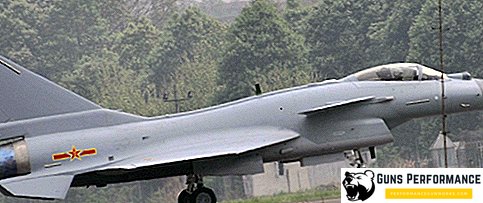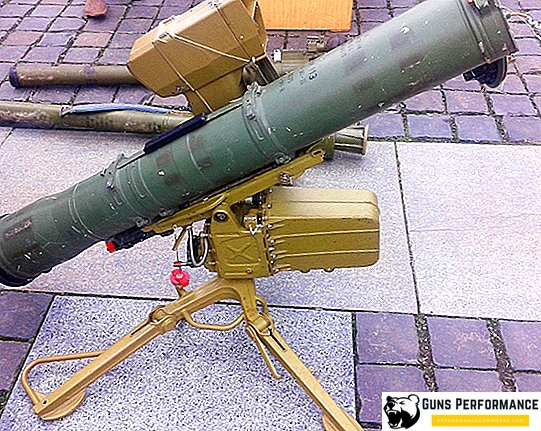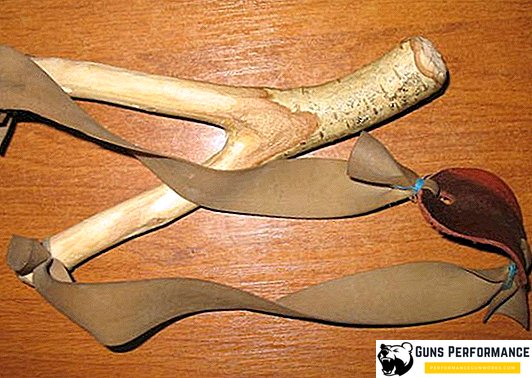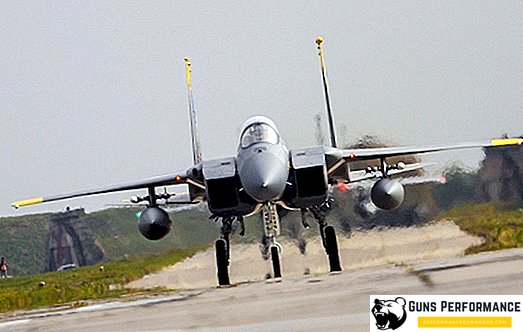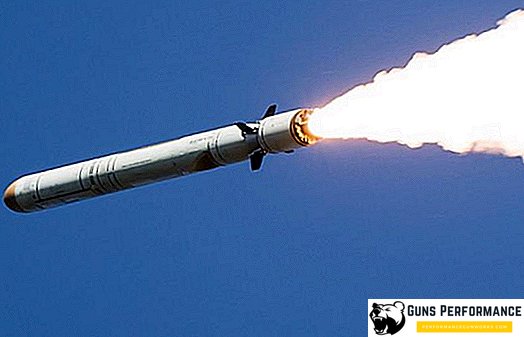
Today, the number one terrorist organization in the world is without doubt Al-Qaida (Activity is prohibited in Russia). After the collapse of the Soviet Union and the collapse of the communist bloc, it was Al-Qaida that became the main enemy of the Western world. Currently, this grouping is not the most widespread, and the bloodiest one cannot be called either. However, it was Al Qaeda who planned and carried out the September 11 attacks in the United States, which marked the beginning of a new era in world politics.
Al-Qaida is translated from Arabic as “basis,” “foundation,” “foundation.” This is an international terrorist organization that professes the Wahhabi direction of radical Islam. The al-Qaida flag is a black cloth with a white shahada.

The organization was created by Osama bin Laden in the late 80s. Currently, al-Qaeda has a complex and branched structure, which includes offices in many regions of the world (Libya, Syria, the Arabian Peninsula, the Caucasus and others).
The main purpose of the organization is to fight against the Western world and the government of those Muslim countries that cooperate with the West.
It can be said that Al-Qaida has already passed the peak of its power, but despite this, this group remains very influential and dangerous.
The story of "al-Qaeda"
Al-Qaida emerged on the territory of Afghanistan in the late 80s of the last century. The main culprits of the appearance of this terrorist organization are the Soviet Union and the United States. The USSR sent troops into the territory of an independent country, breaking the delicate balance between the various national and religious groups living on it. Since then, the Afghan land can only dream of peace.
The Americans did not come up with anything better than how to use radical Muslim organizations to fight the Soviet troops in Afghanistan. Since the beginning of the Soviet aggression, the United States strongly supported and generously financed the Islamists, training camps were opened for them, the groups of the Mujahideen did not know any lack of weapons. Jihad was declared to the Soviet troops in Afghanistan, volunteers to fight the infidels came from various Muslim countries.
Pakistan’s future Prime Minister Benazir Bhutto once told US President George W. Bush about supporting the Islamists: “You are creating Frankenstein with your own hands.” She seemed to be looking into the water: after the withdrawal of Soviet troops from Afghanistan, the Islamists found a new goal - the West and first of all America.
The secular regimes in the Muslim countries caused no less fury among the fanatics; they considered them traitors to deserve death. Afghanistan for many years turned into a real snake's nest.

The founder and spiritual leader of al-Qaida is Osama bin Laden, who from the very beginning of the struggle against the Soviet troops took an active part in it. A Saudi millionaire from a very wealthy family, he helped the Mujahideen with money, weapons, food for a long time. By this he gained wide popularity in the Islamic world.
In 1988, Osama bin Laden founded a new Islamist organization, al-Qaida. For many years his name and the name of this group will be inseparable, and he himself will become a number one terrorist in the world.
In 1992, the Saudi authorities drove Osama bin Laden out of the country, and he found refuge in Sudan, where Islamists were in power at the time. However, soon Saudi Arabia deprived of its citizenship and frozen accounts, and the Egyptian Islamic Jihad, which along with bin Laden stood at the origins of Al-Qaida, collapsed in Egypt.
In 1996, Osama bin Laden was expelled from Sudan, he had to return to Afghanistan. The exile from Sudan greatly weakened Al-Qaida and its head: bin Laden lost his business and several tens of millions of dollars. In August 1996, he declared war on the United States.

First blood
The first terrorist act, organized by Al-Qaeda, is considered to be an explosion in a hotel in Aden (the capital of Yemen), which killed two people. This happened on December 29, 1992. Then bin Laden sponsored the Islamists of Algeria, which led to large-scale violence in the country, the victims of which were from 150 to 200 thousand people. However, the authorities managed to suppress terrorist attacks.
Al-Qaida is suspected of organizing a terrorist attack in Luxor (Egypt) in 1997, which killed more than 60 people. Bin Laden allocated money to the Afghan Taliban, which he needed to continue the civil war in that country.
In 1998, the al-Qaida leader issued a fatwa on the start of world jihad against the Crusaders and Jews, which called for the murder of Americans and any of their allies.
The turning point in the history of al-Qaida was August 7, 1998. On this day, near the American embassies in Dar es Salaam (Tanzania) and Nairobi (Kenya) powerful explosions thundered. Hundreds of people died, of which only a few dozen were Americans. The US intelligence services very quickly found out that al Qaeda was behind these crimes. After these events, Osama bin Laden hit the top ten most wanted FBI terrorists, and Al Qaeda acquired the unofficial status of the number one terrorist organization in the world.
At about the same time, several equally large terrorist attacks, organized by bin Laden, were prevented or failed due to unforeseen circumstances.

September 11 attacks
The finest hour for Osama bin Laden and his organization began on September 11, 2001. On this day, four groups of terrorists were able to capture four American passenger aircraft. Two of them were sent to the World Trade Center towers in New York, the Pentagon building was the target of another airliner, and the fourth plane fell into a field in the state of Pennsylvania - its passengers tried to seize control from the terrorists. As a result of the attacks killed almost 3 thousand people. On this day, America experienced a real shock.
Al-Qaeda first denied any connection to these attacks, but the FBI, almost immediately after the tragic events, stated that there was irrefutable evidence of bin Laden’s involvement in his attacks. A similar statement was made by the British government.

The attacks of September 11 caused a whole chain of events, which would later be called the “War against Terrorism”. We can say that it continues to this day.
Soon, the Americans launched an invasion of Afghanistan and, together with units of the Northern Alliance, defeated the Taliban, Al-Qaida’s main allies in the country. However, after this, peace and prosperity did not come to the land of Afghanistan: fighting between government forces and Islamists continues today, with the resistance of the Taliban only intensifying.
In 2003, the United States accused Saddam Hussein of supporting Al-Qaida and participating in the preparation of the September 11 attacks. After that, the second Gulf War began. Within weeks, the Iraqi army was crushed and the Hussein regime fell. The US invasion of Iraq destroyed the fragile interfaith balance that existed in this country, which was one of the main reasons for the emergence in the future of a new terrorist organization - the Islamic State (ISIL). But that's another story.
Search for bin Laden began in the late 90s after the attack on the US embassies in Tanzania and Kenya. However, after the attacks of September 11, he became the "enemy No. 1" of the United States and a reward of $ 25 million was announced for his head, in 2007 this figure was doubled. But it did not give results. Osama bin Laden most of the time was hiding in the complex of Tora Bora, located in a remote mountainous region of Afghanistan. It was a real snake's nest.
Several times the Americans and their allies were close to catching or destroying the al Qaeda leader, but each time he managed to escape.

The new US President Barack Obama has put the question of the destruction of Osama bin Laden as a priority task for the US special services. Only in early 2011, Americans received information about the whereabouts of the terrorist. On May 2, 2011, as a result of a special operation of the American "fur seals", Osama bin Laden was destroyed in his own house in Abbottabad (Pakistan). His body was identified and buried in the sea.
After bin Laden’s death, his right hand, Ayman al-Zavahiri, took over the leadership of the organization.
The loss of the spiritual leader did not break the Islamists. In the summer of 2012, al-Qaida, together with another radical organization, Ansar ad-Din, captured several cities in northern Mali. They immediately established Sharia law.
Mali’s government forces managed to throw the Islamists away only with the help of French troops.
In September 2012, al-Qaida militants attacked the US embassy in Benghazi (Libya). The attack killed several Americans, including the ambassador.
At the beginning of 2013, Mali was again attacked, and they were only able to oust the terrorists after the arrival of the French troops.
At the beginning of 2012, the Al Nusra Front organization was founded - an al Qaeda branch in Syria and Lebanon. Very quickly, this grouping became one of the most successful among the insurgency. Al-Nusra Front is recognized as a terrorist organization by the United States, Britain, Russia, Turkey and the United Nations.
Al Qaeda Structure
After the death of Osama bin Laden, the leadership of the organization was Ayman al-Zawahiri. Al-Qaida has a governing body - Shura, which consists of eight committees: on religion, public relations, military, financial, and others. The most influential of these is religious. It was Shura who made the most important decisions.
Al-Qaida cells exist in 34 (according to other data in almost 80) countries of the world. The structure of the organization resembles a political party: in the event of the destruction of one leader, the next one on the list becomes his place.

Ideology
The main objectives of al-Qaeda is to fight the United States and Israel, as well as to overthrow the "rotten" ruling regimes in Muslim countries and establish sharia law in them.
Bin Laden declared that he wanted to unite all Muslims and establish a world caliphate.
According to the fatwa of 1998, every Muslim must fight Americans and Jews. Those who do not heed this call will be declared apostates, traitors to faith.
Bin Laden can be called the first to turn terrorism into a global geopolitical tool. Al-Qaida has clearly shown that one organization can challenge and successfully resist all the power of the West: financial, military, technological.

This allowed Al-Qaeda to establish control, or even to completely subjugate the multitude of extremist Muslim groups around the world, which had previously been independent.
Al-Qaida pays great attention to the psychological preparation of future fighters. A person is inculcated with the idea that death during the performance of a task or in battle is not a loss, but luck and a privilege that every believer should strive for. This group for the first time put the training of suicides "on stream." A massive and very effective system for recruiting new members was also created. To this end, Al-Qaida actively uses the latest communication technologies: the Internet, social networks.
Despite the fact that al-Qaida actively opposes globalization, it itself is very actively (and quite successfully) using the fruits of this globalization for its own purposes.
Financing
Al-Qaida is funded from various sources. One of the main ones is private donations that come from individuals and various organizations. There is a rather complicated (and well-developed) scheme of money transfer, when not very large amounts are transferred from one account to another, often within several countries. Front companies are often used.
Another powerful source of income for Al-Qaida is drug trafficking, according to expert estimates, the organization receives up to 40% of its revenue from this type of illegal activity. Donations account for about 30%, the rest comes from other illegal activities (smuggling, illegal trade in minerals, human trafficking, others). Part of the funds through nominees invested in the legal business: banks, food production, equipment, trade.
It should be noted that in recent years, the financial situation of Al-Qaida has deteriorated significantly. So, at least, many experts believe.



